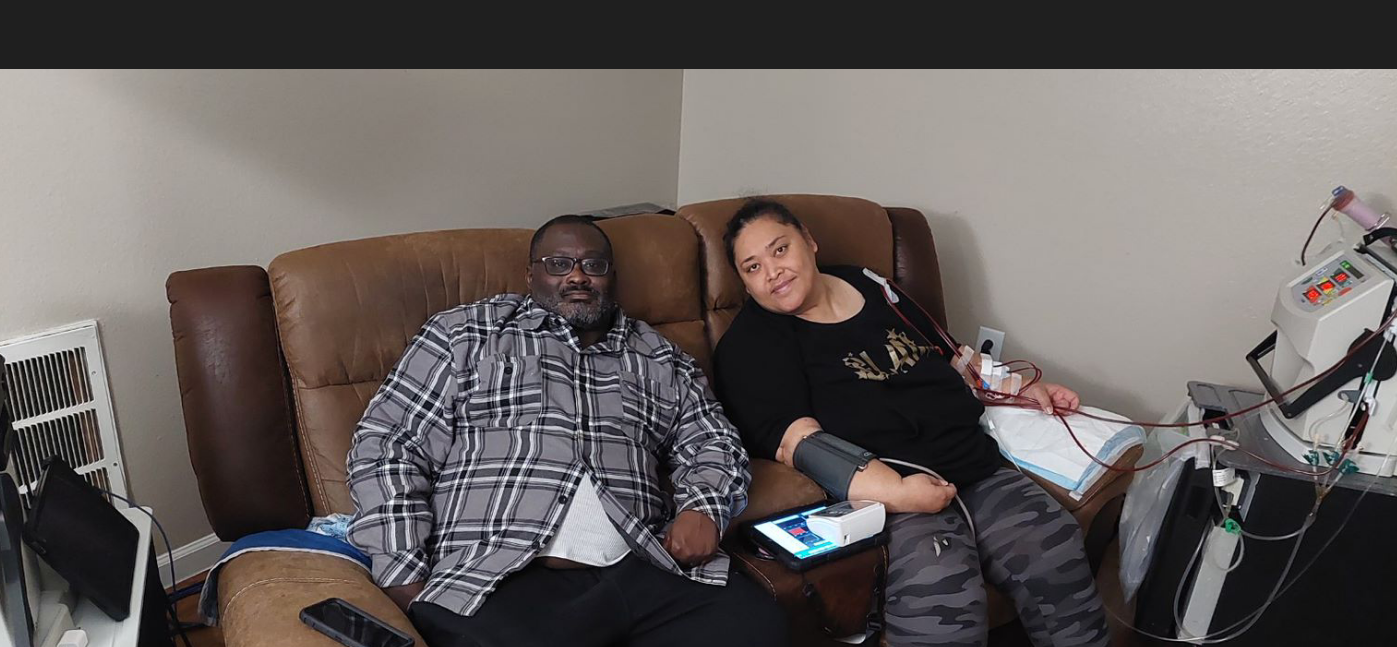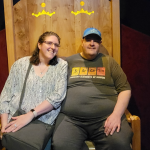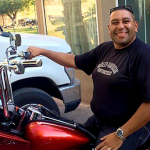Passing Notes and Pressing On: The Life-Changing Choices of Easter and Elbert
In 2020, COVID-19 dramatically changed how people lived, and the dialysis floor at DaVita Palmdale Regional was among millions of places where staff adopted new rules for everyone’s safety. While helping stop the spreading virus, social distancing was also changing how patients interacted. Normal chit-chat between dialyzing “neighbors” was difficult – and trying to make new friends was even harder. It was certainly not a likely environment for love to blossom. Or was it?
Elbert, a new patient at the center, was walking to his chair one day when he noticed someone he’d never seen before undergoing therapy. “She caught my eye,” he says. “And I liked how she looked. But with the rules we had to stay so far apart.”
Since he couldn’t talk to her directly, Elbert decided to send a note to the mystery woman across the room. He stayed up all night to make sure he chose just the right words, and during his next visit a technician delivered the message for him.
After opening Elbert’s note – which included a request for her phone number –
Easter wasn’t sure how to react. Was he serious? She was flattered he said she was pretty, but she had just ended a complicated relationship. “A friend of mine told me
I should go for it,” recalls Easter. She said, ‘You might gain a friend, but maybe you’ll
meet your soul mate.’”
As it turns out, Elbert’s note – and Easter’s positive response – changed everything. The two began talking, then dating, and eventually became husband and wife. It was a wonderful new beginning for both, and it wouldn’t be the last.
Years before the couple met, Easter had started a therapy called more frequent home hemodialysis (HHD) with a NxStage system. She loved the way she felt on more frequent HHD, but a change in her living situation forced her back in-center. With a new home and Elbert by her side, she considered making the switch back. And she asked her spouse to join her.
“I had heard about HHD from doctors, but sometimes you need to hear things from someone who has been through it,” says Elbert. “When my baby told me about it, that’s when I understood it. I took that information and ran with it.”
After conversations with their care teams and doctors, Elbert and Easter began training to do HHD and looked forward to making the transition home. But they quickly hit a roadblock. A landlord denied their request to bring the NxStage HHD machines home to their apartment. Determined to finish the journey they’d started; they sought advice from social workers and eventually an attorney. It took several months, but Elbert and Easter persevered, and their landlord reversed their decision.
“They thought we didn’t know our rights,” says Elbert. “But we showed them that what they were doing was wrong. After that, everything went smoothly.”
After getting back on track, it took about one month for the couple to finish training and go home. It was a life-changing moment. Side-by-side, Easter and Elbert do dialysis 5 days a week and are thrilled with the results.
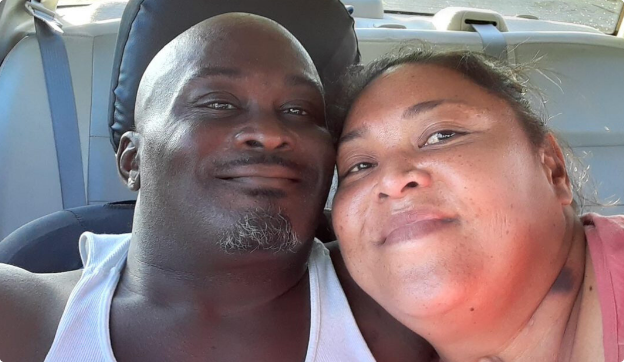
“I can’t tell you how good HHD is,” says Elbert, who does home improvement projects for a living. “I have so much energy. I can get off the machine and go do a painting job or even put in a floor. I couldn’t do that when I was in-center. But now I have the energy and the time.”
Easter says the best thing about being on HHD is that she can enjoy more time with family, including attending their son’s football games.
“When I was in-center, if he had a game on the same day as my treatment, there were many times when I couldn’t make it through the whole thing,” she remembers. “Halfway through I’d have to go back to the car and rest. My body was just drained. Now I can stay and see every minute!”
Elbert and Easter also appreciate the flexibility they get from HHD. They aren’t stuck with the same time slot every day, and often change their dialysis timing to suit their schedule.
“It depends what kind of day we’re having,” says Easter. “If we have lots of appointments later in the day, we’ll do therapy in the morning. If not, we can get on the machine before bed. It feels like we have our life back.”
“I can’t tell you how good HHD is,” says Elbert, who does home improvement projects for a living. “I have so much energy. I can get off the machine and go do a painting job or even put in a floor. I couldn’t do that when I was in-center. But now I have the energy and the time.”
For Elbert, HHD provides the freedom to get back into hobbies and interests he had given up while in-center. He’s taken up fishing again and looks forward to doing some hunting next year. In addition, he and Easter have also become NxStage Patient Advocates, meeting with groups of patients and care team members to share their stories and talk about home therapy options.
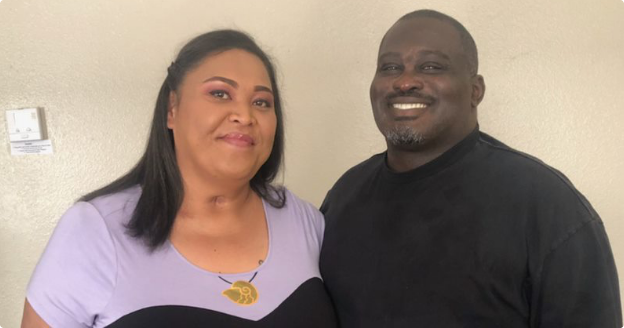
“Sometimes when you’re on dialysis you need someone just to listen or give you a hug and say it’s going to be okay,” says Easter. “They need to hear things from a patient’s point of view. They need someone to talk to them like a friend. I feel great about it.”
Having been through so much themselves, Easter and Elbert want people on dialysis to know that it’s never too late to make a change that could change your life.
“Basically, just don’t give up,” says Easter. “Whatever life handed to you, don’t let it stop you from living.”
Not all patients may experience these benefits.

